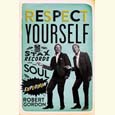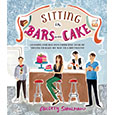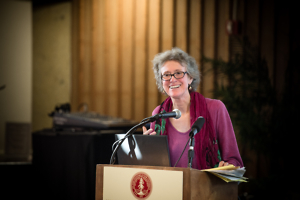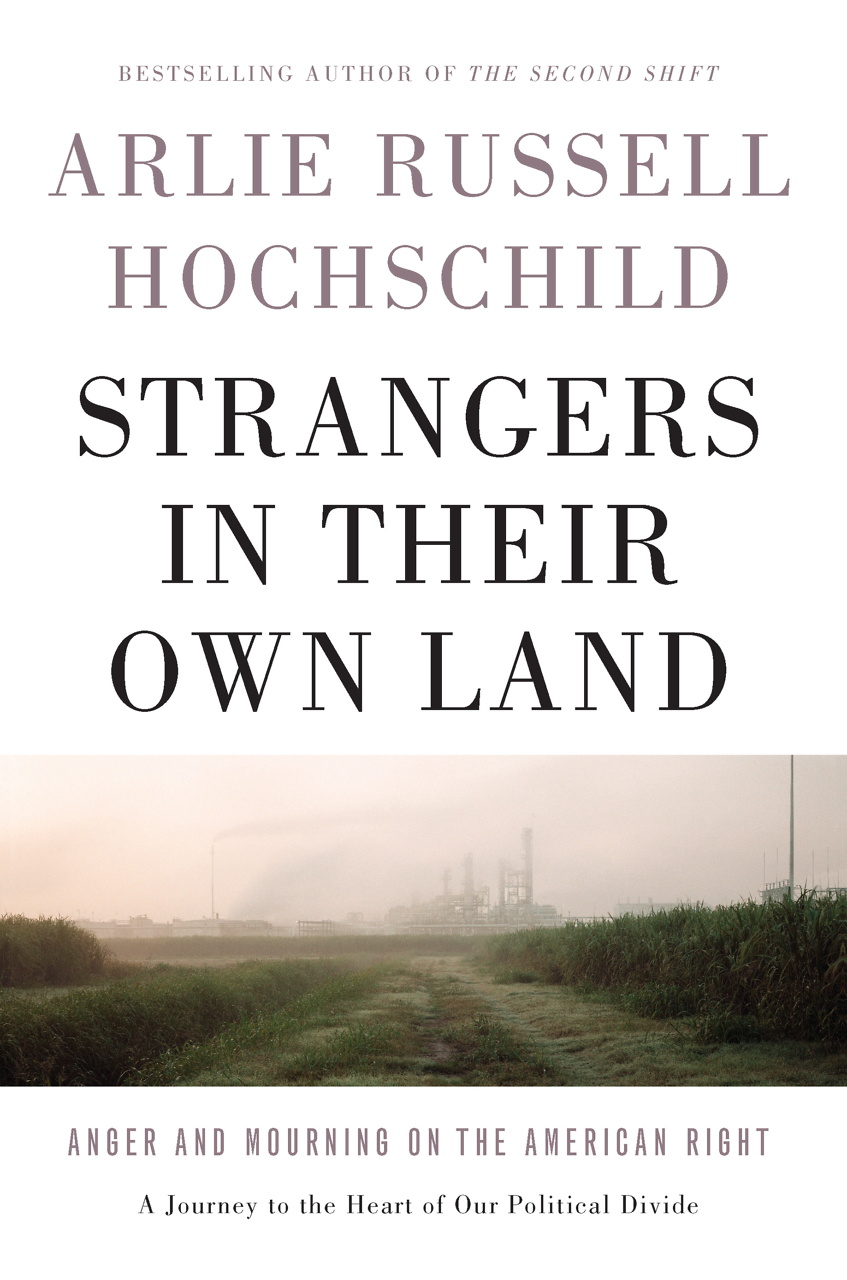Like A Kid Who Doesn’t Quite Belong
Hillbilly Elegy author J.D. Vance still loves the Appalachia he left behind
By his own estimation, J.D. Vance never had much of a chance in life: born in rural Kentucky, he grew up shuttling among parents and grandparents, surrounded by a working-class white culture sinking deeper into poverty and drug abuse. But he made it through the Marines and Yale Law School and now works in private equity in San Francisco. His new memoir, Hillbilly Elegy, is more than the story of his still-young life: it is also a sharp, compelling analysis of anomie and social breakdown in modern America. His timing couldn’t be better. Anyone trying to understand what drives the Trump phenomenon should include Vance on their reading list. He recently answered questions from Chapter 16 via email:

Chapter 16: Your book has been drawing media attention for months and is now hovering at the top of the bestseller charts. What do you think explains the book’s resonance?
J.D. Vance: A couple of things. One, Donald Trump’s success has forced a lot of people to recognize that they don’t know a lot about one of his core constituencies: white voters without a college degree. And my book obviously discusses that group of people in some detail. Two, the conversation we’ve had in the U.S. about poverty, inequality, and upward mobility has been rigidly ideological for too long. I hope my book challenges both sides of the political aisle while also conceding that both sides have important contributions.
Chapter 16: Despite the fact that you went to Yale Law School and now live and work in the San Francisco Bay area, you write that you still consider yourself a “hill” person. What does being a hillbilly mean to you today?
Vance: I think it means, first of all, loving the land of Appalachia and the people who live there. No matter where I live or whom I spend the most time with, I don’t ever think I’ll lose that affection. And I’ll always look at the world of the elites through the eyes of a kid who still feels he doesn’t quite belong.
Chapter 16: One of the striking themes in Hillbilly Elegy is the observation that Appalachian whites are not just in a bad place socioeconomically but are also “the most pessimistic people in America”—a fact that may set them apart from other similarly challenged groups. What do you think explains that pessimism? How did folks get to the point where they “increasingly encourage social decay”?
Vance: Part of it is that people recognize the economic future is unlikely to be as stable as the economic past. The folks who live in these communities see the mines laying people off, read about the union strife, and hear about the mill in their hometown shutting down. So even the people who have jobs don’t necessarily believe those jobs are stable, and certainly don’t think their kids will be able to rely on those jobs a decade from now.
But I also think they’re seeing things that aren’t economic, and those non-economic factors are more important than the decline of reliable wages. They know that heroin and prescription drugs have taken root in their communities; they know that families are breaking up; they know that incarceration rates are on the rise. A lot of people feel as if the whole world is falling apart.
I don’t believe that all of these problems are our fault, precisely, but I do think a lot of us have responded to these problems by looking outward. We have to recognize that some of these problems have a political solution, but some don’t. If we don’t recognize our own agency to fix some of what ails our community, we’ll make things worse.
Chapter 16: Much of your book, and many of the reviews, focus on the negatives about hillbilly life and Appalachia. But you also highlight some of the extremely positive elements. What comes to mind?
Vance: Hill people are proud, loyal, patriotic, and irreverent. I’m all of those things—probably to a fault—even though the trappings of Silicon Valley surround me. We hate pretentiousness, and it allows us (even forces us) to connect with people in a very deep, emotional way. Most of all, I think we’re resilient. A lot of us have been kicked to the ground again and again, but we continue to get back up. Without that resilience, my family would have never had a chance. And neither would I.
Chapter 16: A significant theme in the book is the place of religion within Appalachian society. It’s obviously not monolithic—there are megachurch evangelicals and charismatic “snake handlers”—but also many folks who are deeply religious but don’t go to church at all. And this is an important and troubling distinction to you. Why?
Vance: For both spiritual and communal reasons, church matters. There’s a reason that churches have existed since the beginning of the Christian faith: they sustain people, teach people good morals, and keep their faith grounded in something real and tangible. They also give folks a community—one that encourages, supports, and places demands on us. In so many of these areas, life is hard. We’ve lost unions and jobs that made us proud, we mistrust much of the media and our political institutions, and our neighborhoods have lost the allure that comes with vibrant homes and businesses. Church is one of the few places left that gives us a place to gather and a community to call our own. The evidence is pretty clear: folks who attend church divorce less, consume fewer drugs, commit fewer crimes, and so on (and the relationship appears to be causal). Yet at a time when the problems of our community have reached crisis proportions, we call ourselves “Christians” but attend church less and less.
Chapter 16: You give a lot of credit for your success to your grandmother—Mamaw, as you call her. But is that the only hope for individual Appalachians: the luck of the draw in having a supportive, inspiring adult in their lives? You dismiss social policy as inadequate, but where does that leave our larger society in its efforts to lift up folks like Appalachian whites?
Vance: There’s a role here for better social policy, but social policy alone probably won’t do. The unfortunate fact is that without at least one positive adult influence, most kids are playing the game of life with the deck stacked high against them. So we ought to give more kids more opportunities to have supportive families. We might, for instance, administer child-welfare policy in a way that allows troubled kids to spend more time with grandparents, aunts, uncles, and other kin. We might also spend more resources on working with disadvantaged parents and helping them understand how to give their kids more of a leg up.
But the lesson of my life—and the conclusion of decades of trying to help the poor—is that many of these barriers are familial and communal. I take from that recognition both a renewed optimism that better policy can help (so long as it’s clear-eyed about the nature of the problem), but also a belief that my own community has some power to improve the lives of our children.
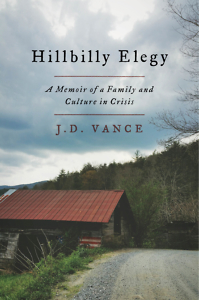 Chapter 16: You focus a lot of your ire on “lazy” people: “You can walk through a town where 30 percent of the working-age men work fewer than 20 hours a week and find not a single person aware of his own laziness.” It’s a fair point, but what if there’s no more work to be had? Isn’t the real problem a lack of opportunity?
Chapter 16: You focus a lot of your ire on “lazy” people: “You can walk through a town where 30 percent of the working-age men work fewer than 20 hours a week and find not a single person aware of his own laziness.” It’s a fair point, but what if there’s no more work to be had? Isn’t the real problem a lack of opportunity?
Vance: As I said in the book, there are many hardworking people who simply can’t find a job. Most of those out of work aren’t lazy, but some are. And I don’t believe it’s possible to live in these communities and not see both the hardworking person desperately looking for a job as well as the man who doesn’t work, doesn’t seem to be looking for work, and is perfectly content to call himself industrious despite all evidence to the contrary.
I’m worried most about agency and expectations. Life very often isn’t fair to our kids, but it’s destructive for our kids to believe that they don’t have a shot. They’ve got to be, as Mamaw was, clear-eyed about the barriers they face but cognizant of the fact that they can control significant parts of our destiny. When a young girl watches an uncle extol the virtues of hard work despite spending little time actually trying to find a job, it warps the expectations she has for the meaning and demands of the virtue of industriousness. I want that girl to admire the people in her life who do work hard (even if they’re temporarily out of a job), demand that her political and business leaders offer more opportunity, and still recognize that she can control many parts of her life.
Chapter 16: By the end of the book, one theme that emerges is the split between working- and lower-class whites and upper-middle- and upper-class whites, and the vast gulf of imagination and empathy that separates them. You are an example of someone who was able to move across that gap, from the former to the latter. But you also argue that more people might follow your lead if folks on the other side made more of an effort to be open and empathetic—to try to understand and not condescend to hillbilly culture. What specifically do you have in mind?
Vance: It’s not just hillbilly culture; I think relatively established elites often don’t know what to do with upwardly mobile people of any culture. First of all, people on the other side would do well to remember that most kids like me probably don’t know what they don’t know. They don’t know what to wear to an interview, how to conduct themselves at a nice restaurant, how to network to promote a career, and how to develop relationships with professors and mentors. This doesn’t make them stupid or unsophisticated; it just makes them an outsider.
I benefitted immeasurably from just a couple of people taking me under their wing and ensuring that I acquired knowledge about elite culture. I’d encourage those who were born into that culture to find people like me and help them. You may just change someone’s life in the process.
But most of all, just keep an open mind and an open heart. Kids like me feel like aliens the moment they arrive at a place like Yale. With very few exceptions, people were nice and welcoming and helpful. And if they hadn’t been, I don’t know what I would have done.

Nashville native Clay Risen is the author of A Nation on Fire: America in the Wake of the King Assassination and American Whiskey, Bourbon and Rye: A Guide to the Nation’s Favorite Spirit. His new book, The Bill of the Century: The Epic Battle for the Civil Rights Act, appeared in spring 2014. He lives in New York, where he is an editor at The New York Times.

